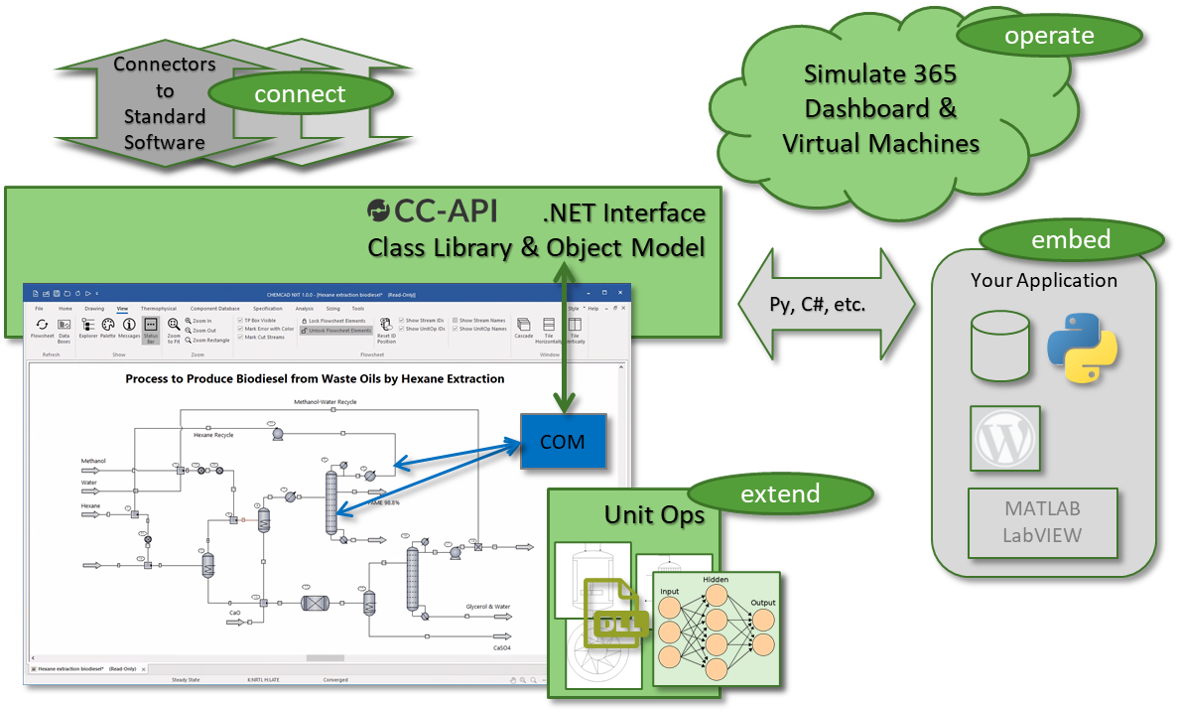Connect
standard software to CHEMCAD
This way, another application can use CHEMCAD's thermodynamic calculations, i.e. access property data and thermodynamic models.
Embed
CHEMCAD in your application
Your application can be written in C# or it can be based on WordPress, MATLAB, or LabVIEW.
Extend
CHEMCAD with custom unit operations
Convert expertise and know-how into a model that is used in process design and optimization. Or get an innovative unit op from our shop.
Operate
CHEMCAD in the cloud
We have developed some applications that demonstrate the unique advantages of cloud computing.




